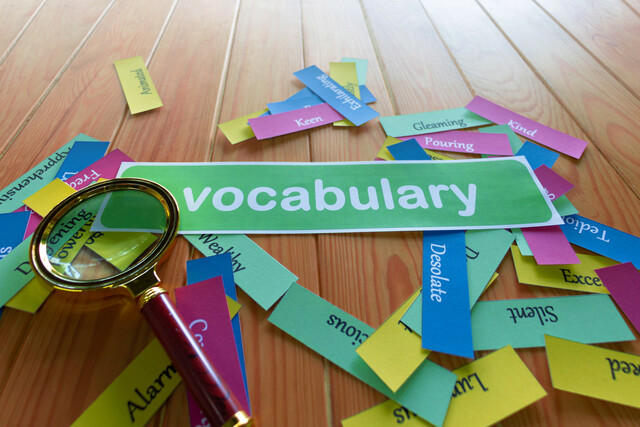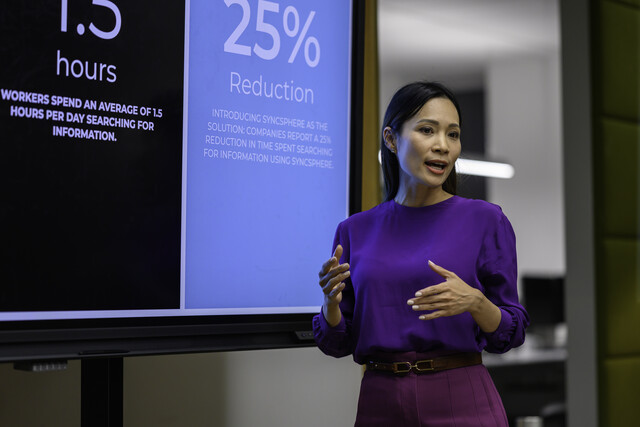Online Class: Journalism 101

no certificate
with CEU Certificate*
-
15Lessons
-
24Exams &
Assignments -
1,322Students
have taken this course -
14Hours
average time -
1.4CEUs
Course Description
Unlock the World of Journalism: A Comprehensive Online Course
Embark on an immersive journey into the pulsating heart of journalism with this comprehensive online course. This curriculum is meticulously crafted to provide learners with a panoramic view of journalism, charting its evolution from ancient times to the dynamic digital age.
The course unfolds with an insightful glance into the roots of journalism, tracing the very first instances of news dissemination to the burgeoning newspaper industry, especially its significance during pivotal moments in U.S history post the Revolutionary War. This historic backdrop not only contextualizes the importance of journalism but also underscores its ever-evolving nature.
Essential skills are at the forefront of this course. Beyond mere theory, students are equipped with pragmatic newsgathering techniques, honing their proficiency in crafting compelling narratives for both print and other media formats. Dive deep into the quintessential tools of the trade, from mastering the art of the inverted pyramid to sharpening one's notetaking prowess.
Recognizing the importance of impeccable language in this profession, students can revisit the fundamentals of grammar and punctuation. More than just about constructing sentences, journalism is about responsibility. Hence, dedicated modules delve into the ethical considerations and legal ramifications that every budding journalist must be cognizant of.
Discover the nuances of discerning newsworthiness, guiding you on how to sift through the mundane to unearth stories that resonate. The course culminates in a deep dive into the world of investigative journalism, a realm where tenacity meets depth. Learn how to select subjects that warrant a deeper probe and how to navigate the intricacies of such comprehensive reports.
In an era where information is omnipresent, the role of a journalist transcends mere reporting. This course reiterates the solemn duty journalists owe to their profession and the broader society. From spotlighting injustices to celebrating triumphs, journalists shape narratives and perceptions.
Engage, inform, and inspire. This course doesn't just train you to become a journalist—it empowers you to become a storyteller, a beacon of truth in a world inundated with stories waiting to be told. Join us and redefine your understanding of journalism.
- Completely Online
- Self-Paced
- Printable Lessons
- Full HD Video

- 6 Months to Complete
- 24/7 Availability
- Start Anytime
- PC & Mac Compatible
- Android & iOS Friendly
- Accredited CEUs

Course Lessons
Lesson 1. The Journey of Journalism
 Lesson 1 Video
Lesson 1 Video Review Practice Worksheet: Lesson-1-WordSearch-13321.pdf
Review Practice Worksheet: Lesson-1-WordSearch-13321.pdf Lesson discussions: Reasons for Taking this Course
Lesson discussions: Reasons for Taking this Course Complete Assignment: Why this Course?
Complete Assignment: Why this Course? Assessment: Exam 1
Assessment: Exam 1
Lesson 2. Crafting Narratives: The Art and Ethics of Journalism
 Lesson 2 Video
Lesson 2 Video Review Practice Worksheet: Lesson-2-HomeWork-13323.pdf
Review Practice Worksheet: Lesson-2-HomeWork-13323.pdf Assessment: Exam 2
Assessment: Exam 2
Lesson 3. Journalistic Integrity: Balancing Public Interest and Privacy
 Lesson 3 Video
Lesson 3 Video Review Practice Worksheet: Lesson-3-WorkSheet-13325.pdf
Review Practice Worksheet: Lesson-3-WorkSheet-13325.pdf Assessment: Exam 3
Assessment: Exam 3
Lesson 4. Editing the Narrative: Understanding Libel, Privacy, and Ethical Challenges
 Lesson 4 Video
Lesson 4 Video Review Practice Worksheet: Lesson-4-Downloadable-13327.pdf
Review Practice Worksheet: Lesson-4-Downloadable-13327.pdf Complete: Lesson 4 Activity
Complete: Lesson 4 Activity Assessment: Exam 4
Assessment: Exam 4
Lesson 5. Deciphering News Values: Through the Journalist's Lens
 Lesson 5 Video
Lesson 5 Video Review Practice Worksheet: Lesson-5-WordSearch-13329.pdf
Review Practice Worksheet: Lesson-5-WordSearch-13329.pdf Complete: Lesson 5 Activity
Complete: Lesson 5 Activity Assessment: Exam 5
Assessment: Exam 5
Lesson 6. Unearthing Hidden Narratives: A Journalist's Guide to Capturing Real-World Stories
 Lesson 6 Video
Lesson 6 Video Review Practice Worksheet: Lesson-6-HomeWork-13331.pdf
Review Practice Worksheet: Lesson-6-HomeWork-13331.pdf Assessment: Exam 6
Assessment: Exam 6
Lesson 7. Harnessing Research: Driving Compelling Journalistic Stories
 Lesson 7 Video
Lesson 7 Video Review Practice Worksheet: Lesson-7-WorkSheet-13333.pdf
Review Practice Worksheet: Lesson-7-WorkSheet-13333.pdf Assessment: Exam 7
Assessment: Exam 7
Lesson 8. Enhancing Journalism through Active Listening & Keen Observation
 Lesson 8 Video
Lesson 8 Video Review Practice Worksheet: Lesson-8-Activity-13336.pdf
Review Practice Worksheet: Lesson-8-Activity-13336.pdf Complete: Lesson 8 Activity
Complete: Lesson 8 Activity Assessment: Exam 8
Assessment: Exam 8 Assessment: MidTerm
Assessment: MidTerm
Lesson 9. Interviewing Essentials for Aspiring Journalists
 Lesson 9 Video
Lesson 9 Video Review Practice Worksheet: Lesson-9-WorkSheet-13338.pdf
Review Practice Worksheet: Lesson-9-WorkSheet-13338.pdf Assessment: Exam 9
Assessment: Exam 9
Lesson 10. Shaping Narratives: Writing with Purpose
 Lesson 10 Video
Lesson 10 Video Review Practice Worksheet: Lesson-10-Activity-13340.pdf
Review Practice Worksheet: Lesson-10-Activity-13340.pdf Complete: Lesson 10 Activity
Complete: Lesson 10 Activity Assessment: Exam 10
Assessment: Exam 10
Lesson 11. Structuring News: From Leads to Conclusions
 Lesson 11 Video
Lesson 11 Video Review Practice Worksheet: Lesson-11-WordSearch-13343.pdf
Review Practice Worksheet: Lesson-11-WordSearch-13343.pdf Complete: Lesson 11 Activity
Complete: Lesson 11 Activity Assessment: Exam 11
Assessment: Exam 11
Lesson 12. Building Impactful News Stories: A Journalist's Guide
 Lesson 12 Video
Lesson 12 Video Review Practice Worksheet: Lesson-12-Downloadable-13345.pdf
Review Practice Worksheet: Lesson-12-Downloadable-13345.pdf Complete: Lesson 12 Activity
Complete: Lesson 12 Activity Assessment: Exam 12
Assessment: Exam 12
Lesson 13. Essential Skills: Mastering Expository Writing
 Lesson 13 Video
Lesson 13 Video Review Practice Worksheet: Lesson-13-WorkSheet-13348.pdf
Review Practice Worksheet: Lesson-13-WorkSheet-13348.pdf Assessment: Exam 13
Assessment: Exam 13
Lesson 14. Journalistic Skills Across Media: A Modern Writer's Toolbox
 Lesson 14 Video
Lesson 14 Video Review Practice Worksheet: Lesson-14-Activity-13350.pdf
Review Practice Worksheet: Lesson-14-Activity-13350.pdf Assessment: Exam 14
Assessment: Exam 14
Lesson 15. In-Depth Reporting: Unraveling Complex Narratives
 Lesson 15 Video
Lesson 15 Video Review Practice Worksheet: Lesson-15-HomeWork-13352.pdf
Review Practice Worksheet: Lesson-15-HomeWork-13352.pdf Lesson discussions: End of Course Poll; Course Comments; Reasons for Taking this Course
Lesson discussions: End of Course Poll; Course Comments; Reasons for Taking this Course Assessment: Exam 15
Assessment: Exam 15 Assessment: The Final Exam
Assessment: The Final Exam
Learning Outcomes
- Analyze the impact of technology on journalism and its role in shaping modern news dissemination.
- Define the historical milestones in the evolution of journalism from ancient times to the digital age.
- Define the key qualities and ethical standards necessary for a successful career in journalism, demonstrating an understanding of their role in maintaining public trust.
- Identify and analyze the evolving platforms and technologies impacting journalism, demonstrating the ability to distinguish between traditional and digital media in delivering news.
- Define the key ethical models relevant to journalism, such as teleological and deontological ethics, by providing examples of how each model applies to journalistic decision-making.
- Describe two major ethical dilemmas in journalism—confidentiality of sources and invasion of privacy—and evaluate potential resolutions by referencing ethical frameworks learned during the lesson.
- Identify and describe the impact of the First Amendment on journalism, examining its role in protecting free expression while navigating the limitations and responsibilities it entails.
- Define the structure and function of different U.S. court systems and explain their relevance in journalistic practice, including coverage of trials and legal outcomes.
- Analyze a news story to assess its newsworthiness, focusing on human impact, novelty, and broader societal significance.
- Define the principles of newsworthiness by identifying examples that demonstrate human interest, novelty, and significance.
- Define personal experiences that can be transformed into wider societal narratives to craft authentic and relatable journalistic stories.
- Identify untapped stories within the community through keen observation of everyday interactions and underrepresented individuals or groups to articulate broader societal changes or issues.
- Define the role of research in journalism by identifying methods to ensure accountability, transparency, and social justice in reporting.
- Demonstrate mastery of lesson content at levels of 70% or higher.
Additional Course Information

- Document Your Lifelong Learning Achievements
- Earn an Official Certificate Documenting Course Hours and CEUs
- Verify Your Certificate with a Unique Serial Number Online
- View and Share Your Certificate Online or Download/Print as PDF
- Display Your Certificate on Your Resume and Promote Your Achievements Using Social Media

Choose Your Subscription Plan
No Certificate / No CEUs
This course only
| Includes certificate | X |
| Includes CEUs | X |
| Self-paced |

|
| Instructor support |

|
| Time to complete | 6 months |
| No. of courses | 1 course |
Certificate & CEUs
This course only
| Includes certificate |

|
| Includes CEUs |

|
| Self-paced |

|
| Instructor support |

|
| Time to complete | 6 months |
| No. of courses | 1 course |
Certificates & CEUs
Includes all 600+ courses
| Includes certificate |

|
| Includes CEUs |

|
| Self-paced |

|
| Instructor support |

|
| Time to complete | 12 Months |
| No. of courses | 600+ |
Certificates & CEUs
Includes all 600+ courses
| Includes certificate |

|
| Includes CEUs |

|
| Self-paced |

|
| Instructor support |

|
| Time to complete | 24 Months |
| No. of courses | 600+ |
Student Testimonials
- "I thought it was very helpful and thorough. I got a lot of useful information and was definitely challenged as well as informed by the curriculum." -- David E.
- "I really enjoyed taking this course. It has helped me tremendously in what I'm looking to do." -- Mildred S.
- "I appreciated the different types of writing." -- Anna J.
- "Thank you. The full course was very useful." -- Stephanie W.
- "The instructor was terrific, and gave praise and criticism as warranted." -- Peggy B.
Related Courses
-
 72 hours
7.2 CEUs
Writing Help Course Bundle
+ More Info
72 hours
7.2 CEUs
Writing Help Course Bundle
+ More Info
-
 36 hours
3.6 CEUs
Ultimate Secretary Training Bundle
+ More Info
36 hours
3.6 CEUs
Ultimate Secretary Training Bundle
+ More Info
-
 6 hours
0.6 CEUs
Freelance Writing 101
+ More Info
6 hours
0.6 CEUs
Freelance Writing 101
+ More Info
-
 14 hours
1.4 CEUs
Report Writing 101
+ More Info
14 hours
1.4 CEUs
Report Writing 101
+ More Info
-
 5 hours
0.5 CEUs
Developing Great Social Skills
+ More Info
5 hours
0.5 CEUs
Developing Great Social Skills
+ More Info
-
 9 hours
0.9 CEUs
Nonfiction Writing 101
+ More Info
9 hours
0.9 CEUs
Nonfiction Writing 101
+ More Info
-
 9 hours
0.9 CEUs
How to Write a Grant Proposal
+ More Info
9 hours
0.9 CEUs
How to Write a Grant Proposal
+ More Info
-
 5 hours
0.5 CEUs
Writing the Great American Short Story
+ More Info
5 hours
0.5 CEUs
Writing the Great American Short Story
+ More Info
-
 17 hours
1.7 CEUs
Poetry Writing 101
+ More Info
17 hours
1.7 CEUs
Poetry Writing 101
+ More Info
-
 5 hours
0.5 CEUs
Vocabulary Level 1
+ More Info
5 hours
0.5 CEUs
Vocabulary Level 1
+ More Info
-
 7 hours
0.7 CEUs
Lean Management
+ More Info
7 hours
0.7 CEUs
Lean Management
+ More Info
-
 5 hours
0.5 CEUs
Vocabulary Level 2
+ More Info
5 hours
0.5 CEUs
Vocabulary Level 2
+ More Info
-
 6 hours
0.6 CEUs
English Grammar Level 3
+ More Info
6 hours
0.6 CEUs
English Grammar Level 3
+ More Info
-
 6 hours
0.6 CEUs
Romance Writing
+ More Info
6 hours
0.6 CEUs
Romance Writing
+ More Info
-
 7 hours
0.7 CEUs
Personal Communication Skills Level 4
+ More Info
7 hours
0.7 CEUs
Personal Communication Skills Level 4
+ More Info
-
 7 hours
0.7 CEUs
Introduction to Ethics
+ More Info
7 hours
0.7 CEUs
Introduction to Ethics
+ More Info
-
 6 hours
0.6 CEUs
Goal Setting for Business
+ More Info
6 hours
0.6 CEUs
Goal Setting for Business
+ More Info
-
 12 hours
1.2 CEUs
Advertising, Marketing and Sales Writing
+ More Info
12 hours
1.2 CEUs
Advertising, Marketing and Sales Writing
+ More Info
-
 19 hours
1.9 CEUs
Creative Writing 101
+ More Info
19 hours
1.9 CEUs
Creative Writing 101
+ More Info
-
 8 hours
0.8 CEUs
Motivational and Public Speaking
+ More Info
8 hours
0.8 CEUs
Motivational and Public Speaking
+ More Info
-
 5 hours
0.5 CEUs
Team Building 101
+ More Info
5 hours
0.5 CEUs
Team Building 101
+ More Info
-
 7 hours
0.7 CEUs
Financial Analysis 101: Planning and Control
+ More Info
7 hours
0.7 CEUs
Financial Analysis 101: Planning and Control
+ More Info
-
 8 hours
0.8 CEUs
Procurement Management
+ More Info
8 hours
0.8 CEUs
Procurement Management
+ More Info
-
 5 hours
0.5 CEUs
Creating and Managing a Non-Profit Organization
+ More Info
5 hours
0.5 CEUs
Creating and Managing a Non-Profit Organization
+ More Info
-
 6 hours
0.6 CEUs
Personal Assistant 101
+ More Info
6 hours
0.6 CEUs
Personal Assistant 101
+ More Info
-
 5 hours
0.5 CEUs
Vocabulary Level 3
+ More Info
5 hours
0.5 CEUs
Vocabulary Level 3
+ More Info
-
 7 hours
0.7 CEUs
How to Win Arguments
+ More Info
7 hours
0.7 CEUs
How to Win Arguments
+ More Info
-
 6 hours
0.6 CEUs
General Receptionist
+ More Info
6 hours
0.6 CEUs
General Receptionist
+ More Info
-
 5 hours
0.5 CEUs
Kaizen 101 - An Introduction
+ More Info
5 hours
0.5 CEUs
Kaizen 101 - An Introduction
+ More Info
-
 11 hours
1.1 CEUs
How to Write Effective Policies and Procedures
+ More Info
11 hours
1.1 CEUs
How to Write Effective Policies and Procedures
+ More Info
-
 5 hours
0.5 CEUs
Habits of Millionaires
+ More Info
5 hours
0.5 CEUs
Habits of Millionaires
+ More Info
-
 7 hours
0.7 CEUs
Organizational Behavior in Business
+ More Info
7 hours
0.7 CEUs
Organizational Behavior in Business
+ More Info





